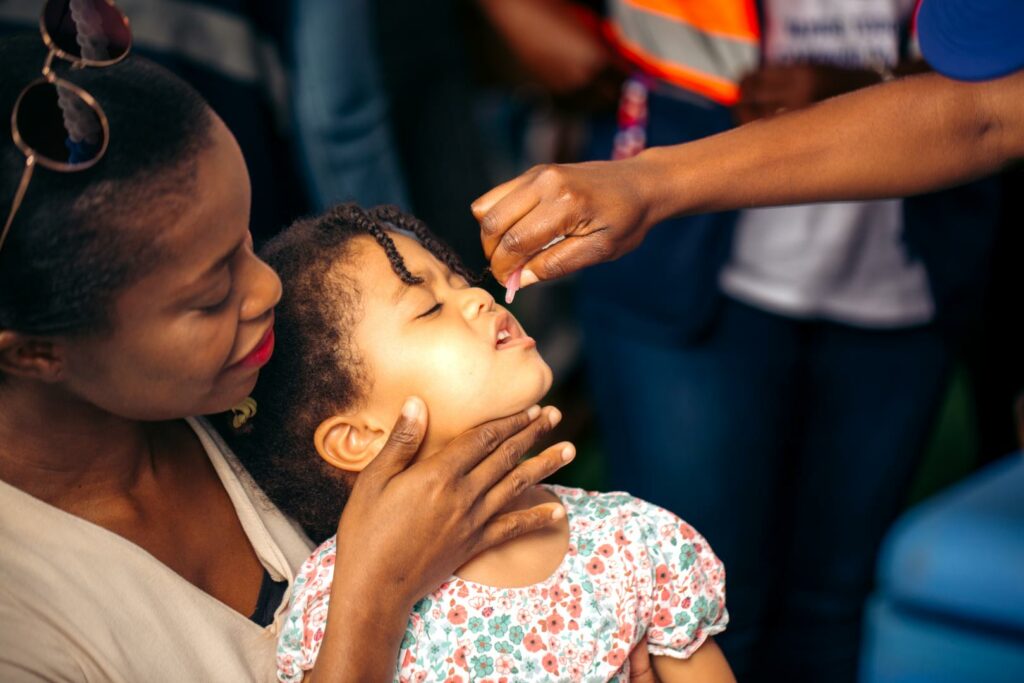World Health Organization (WHO) data, vaccination prevents more than 20 potentially fatal diseases and saves around 3 million lives every year
From April 24 to 30, 2025, Angola joins the other countries on the African continent to mark the 15th edition of African Vaccination Week (AVW), an initiative led by the World Health Organization (WHO), which aims to promote vaccination as a fundamental right and one of the most effective public health interventions.
Under the slogan “Vaccination for all is humanly possible”, this year’s campaign highlights the importance of ensuring equitable access to vaccines for all people, especially children with “zero doses”. In Africa, millions of children have missed out on routine vaccinations due to the COVID-19 pandemic and other disruptions to health services. Angola is among the most affected countries, ranking third on the continent in the number of children with “zero doses”, totaling more than 500,000 children.
African Vaccination Week represents a strategic opportunity to strengthen political commitments, mobilize communities, and revitalize the country’s national and international partnerships that sustain vaccination programmes. According to World Health Organization (WHO) data, vaccination prevents more than 20 potentially fatal diseases and saves around 3 million lives every year.
WHO studies also show that investing in vaccination is essential to prevent debilitating diseases such as measles, polio and tuberculosis, significantly reducing healthcare costs by minimizing the need for medical treatment and hospital admissions.
Consequently, the benefits go beyond the health sector and result in substantial returns in several dimensions: sustainable economic growth, increased productivity, improved quality of life, higher levels of schooling, and strengthened community resilience.
The Angolan government has made significant efforts to strengthen the immunization programme, including allocating a budget for the purchase of vaccines, investing in refrigeration equipment, and plans to introduce new vaccines, such as the human papillomavirus (HPV) vaccine.
During the 1st National Forum on Primary Health Care and Immunization, held in June 2022, the Angolan government reaffirmed its commitment to immunization as a strategic platform for achieving universal health coverage. On the occasion, the Minister of Health stressed that “the investment that Angola has made in the Vaccination Programme is a reflection of the Executive’s commitment to strengthening the National Health Service, to increase access, guarantee equity, promote humanization and encourage innovation in essential health services”.
To achieve these goals, the country has relied on the continuous support of strategic partners, such as the World Health Organization (WHO), the United Nations Children’s Fund (UNICEF), Gavi – Alliance for Vaccines, the World Bank, the United Nations Development Program (UNDP), the Bill and Melinda Gates Foundation, among others, to ensure that no child is left behind.
However, several challenges remain, namely the limited capacity for adequate storage and transport of vaccines, the lack of local infrastructure to ensure their safe arrival in all communities, the shortage of qualified immunization technicians, and the still insufficient coverage of vaccination services in the country.
To strengthen the vaccination system in Angola and help children with incomplete vaccination schemes recover, it is necessary to intensify the actions underway, speeding up the implementation of urgent and crucial measures. These include increased investment by the government, the allocation of more financial resources for healthcare and vaccination programs.
It is also essential to improve vaccination infrastructures, support public policies prioritizing health, strengthen immunization programmes, foster collaboration with international partners and the private sector, and actively involve communities. Improving vaccination coverage means, above all, strengthening and expanding fixed, mobile, and advanced vaccination teams at the community level.
African Vaccination Week 2025 is, above all, a call to action: to protect every child, every family, and every community. Because vaccinating everyone is possible, and humanly urgent







OTHER ARTICLES
Editorial — Prevent, inform, and act for women’s health in Africa
Kenya : Government Prioritises Maternal Health and Strengthens Support for Community Health Promoters
Strengthening pandemic prevention, preparedness, and response capacities in Senegal using the “One Health” approach